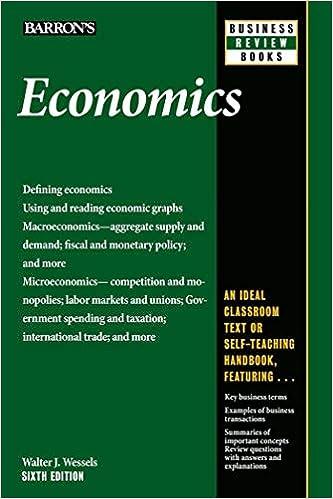Price ceilings can result in such long waiting lines that the effective cost of the good stays
Question:
Price ceilings can result in such long waiting lines that the effective cost of the good stays the same or even increases. For example, on a large college campus, the opportunity cost of an hour waiting in line is $10 an hour for all students. The college allocates 1,000 seats at the home games to students. If sold in a competitive market to college students, the equilibrium price of the tickets would be $40. However, the college gives the tickets away free and mandates that they not be resold (this results in an effective price ceiling of $0). The college gives the tickets away, one to each person waiting in line. How long will the line be and how many hours will people have to wait in line if the demander of the 1,000th seat “pays” in time cost the benefit to them of a seat at the game?
Step by Step Answer:






